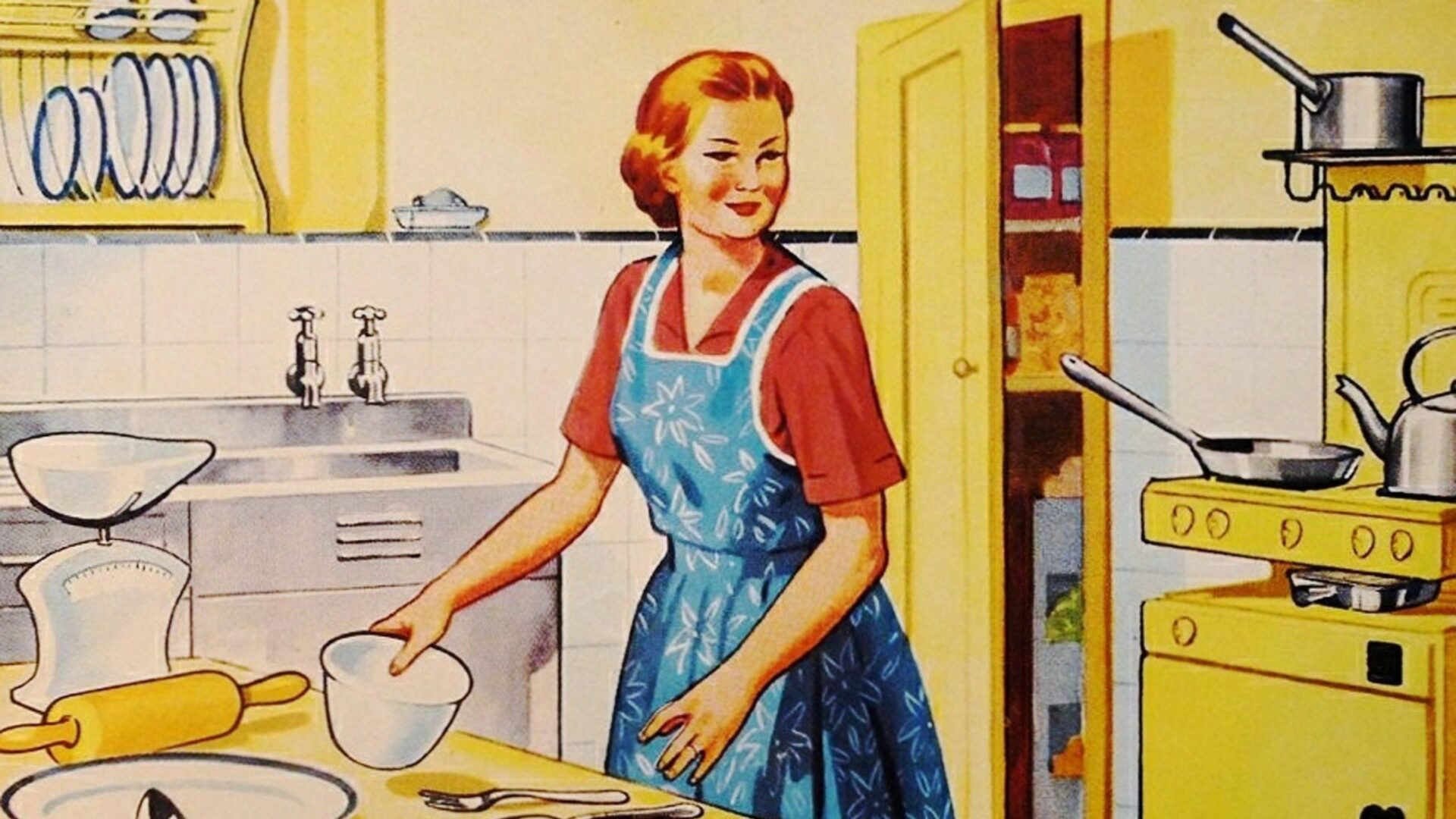A Role of Women in Society and Family
- Women’s Unique Makeup and Value
Women are created differently from men, but these differences do not imply a lesser value or diminished capacity. Physically, emotionally, and physiologically, women possess qualities that complement men. For example, the ability to carry and nurture life through childbirth gives women a unique, irreplaceable role in the continuation of humanity. Their nurturing and empathetic nature is often seen in caregiving roles within the family and society, which should be celebrated and honoured.
The Bible acknowledges these differences but calls for mutual respect and understanding. In 1 Peter 3:7, husbands are instructed to dwell with their wives “with understanding, giving honour to the wife, as to the weaker vessel, and as being heirs together of the grace of life.” Here, “weaker vessel” refers to physical fragility, not inferiority. Husbands are called to cherish, protect, and honour their wives, as both share in the blessings of life equally.
Real-life example: Think of how society often thrives when men and women work together, bringing their unique perspectives and strengths to the table. For example, many women in leadership, politics, and healthcare manage to balance empathy, emotional intelligence, and strategic decision-making. Angela Merkel, the former Chancellor of Germany, is a prime example of a woman whose leadership style brought stability and progress to her country.
- The Role of a Woman in the Family
1 Timothy 2:15 says, “Notwithstanding, she shall be saved in childbearing if they continue in faith and charity and holiness with sobriety.” This passage highlights a woman’s role in the family, specifically in bearing and raising children. It suggests that fulfilment for many women may be found in motherhood and family life. Nurturing children, raising them with faith and values, and creating a loving home environment can bring deep satisfaction.
This does not mean that motherhood is the only path for women or that they should be confined to childbearing alone. Rather, for those who choose motherhood, it is a vital and enriching part of their life’s purpose. Beyond biological motherhood, women often play crucial roles in mentoring and guiding others, both within and outside the family.
Real-life example: Many women find profound joy in motherhood. For example, stay-at-home mothers may speak of the deep connections they form with their children and the satisfaction that comes from actively shaping their children’s values, character, and future. Others, like Mother Teresa, although she had no family herself, found their fulfilment in nurturing people spiritually and emotionally, thus playing the “role of a mother” to the fatherless, and by it also adhering to the traditional roles of family.
- The Debate on Emancipation and Modern Work
The idea of “emancipation,” in the context of women’s liberation, refers to freeing women from traditional roles, particularly that of the housewife. However, the text argues that this movement sometimes overlooks the fulfilment many women derive from traditional family roles. For some, the move away from home-based responsibilities to working for an employer can feel like a loss of purpose, as they may now be serving strangers rather than focusing on their families.
This view does not mean that women should not work outside the home. Many women thrive in careers, contributing to society in powerful ways. However, the critique here is aimed at the cultural shift that sometimes devalues homemaking as a lesser or undesirable role, pushing women to feel pressured into the workforce even if their desire is to stay home and care for their families.
Real-life example: Consider women who have left corporate jobs to return to family-centred roles, such as starting businesses from home to balance career and family life. Sheryl Sandberg, COO of Facebook, openly speaks about the challenges of balancing career and family, acknowledging that there are trade-offs and personal choices in every woman’s journey.

- Returning to Family-Centered Life
The breakdown of family life and the increasing reliance on societal systems for education and values has contributed to various social problems. The text points to the idea that families, especially mothers, should reclaim their central role in nurturing and educating children, passing down values like faith, charity, and holiness as referenced in 1 Timothy 2:15.
When the family is strong, children are more likely to grow up with a solid foundation in faith and morals. This strengthens society as a whole. The modern world often shifts responsibility for a child’s moral and educational development to schools or external institutions, but parents, especially mothers, can provide a more personalized and value-driven education at home.
Real-life example: Homeschooling is an example of a growing trend where parents, often mothers, are taking back control over their children’s education. For many families, homeschooling provides the opportunity to tailor education to their child’s needs while integrating faith and family values into everyday learning. This movement reflects a return to a family-centred approach to raising children.
- Even The Simone Beauvoir
In her seminal work, The Second Sex, Simone de Beauvoir criticizes the notion that a woman’s sole fulfilment comes from childbearing and caregiving. She understood her role well, and in her feministic activity, she argues that this perspective limits women’s potential. In today’s world, the balance between embracing traditional roles and pursuing personal ambition remains an ongoing dialogue, yet it is clearly visible that self-women do not satisfy either society, and we have to create a working position for women by quotas. It does not satisfy the women themselves, as their “liberation from man” leaves them alone, unhappy, unsatisfied, empty, void of joy, and jealous of their happy family life and housewife role. Finally, it does not satisfy the men, as their wives spend most of their lives in the company of others, not able to fulfil their role as a spouse, motherhood and the education of children. The work overload leaves no energy for a happy domestic life and is stealing “the precious” from the warmth of the household.
Beauvoir famously writes, “One is not born, but rather becomes, a woman,” suggesting that societal expectations and cultural norms shape a woman’s identity more than her biology, yet she is trying to win a battle in her mind and soul, which is enviably already lost. The only true fulfilment is in traditional roles of motherhood and homemaking, yet Beauvoir tries to emphasize the importance of autonomy and the ability for women to define themselves outside of these roles, and thus doing, falls short of finding the true make of a woman and her womanhood.
What therefore God hath joined together, let not man put asunder. (Marek 10:9 KJV)
The same way is doomed any attempt which itself against God-given established order. Women is born a women and there is no doubt about it. Our confused or mixed feelings do not change the truth. Her writing is like Don Quixote’s tilting at windmills and needs a serious “identity crisis” session.
Conclusion
Women’s roles, whether in the family or in society, are diverse and meaningful. Historically, women have been integral to the family structure, providing nurturing, wisdom, and moral guidance. Remember that fulfillment for women still come from traditional roles like motherhood, homemaking, or caregiving. Traditional role of women is valid and deserves respect, for they are align with the woman’s personal calling and purpose.
The „chosen role“ of women and the takeaway that women should have the freedom to choose their paths—whether that be in the home, the workplace, or both—is a lie of societal pressures that undermine their God-given role.
A Complementary Clause
Several psychologists and thinkers have expressed views critical of modern feminism, particularly concerning the idea of women working outside the home or taking on non-traditional roles. While these psychologists may not be outright “anti-feminist,” they advocate for more traditional roles for women, emphasizing family, motherhood, and homemaking as central to women’s fulfilment. Here are a few notable examples:
1. Jordan Peterson
Jordan Peterson, a Canadian psychologist and professor, is one of the most prominent contemporary figures who critiques modern feminism. He doesn’t oppose women’s right to work but emphasizes the natural differences between men and women, particularly in terms of interests, psychological traits, and life priorities. Peterson has argued that many women, especially in their 30s, return to more traditional roles, such as prioritizing family and children, after realizing that their careers may not provide the same level of satisfaction.
Peterson often speaks about biological differences between the sexes and suggests that many women find greater meaning in motherhood than in careers, which contrasts with feminist messages that prioritize career and public life. He argues that societal pressures have shifted away from respecting traditional family roles, which, for many women, remain a source of deep fulfilment.
2. Steven Pinker
Though not entirely against feminism, cognitive psychologist Steven Pinker has critiqued some strands of modern feminism, especially the more radical versions that deny or minimize biological differences between men and women. Pinker, in his book The Blank Slate, argues that the idea that men and women are psychologically identical is unsupported by science. He emphasizes the importance of acknowledging natural gender differences, which might lead many women to choose roles more centred on family life.
3. Erica Komisar
Erica Komisar, a psychoanalyst and parenting expert, has written extensively on the importance of motherhood, particularly the first three years of a child’s life, in her book Being There: Why Prioritizing Motherhood in the First Three Years Matters. Komisar argues that children, especially infants, benefit most from the consistent presence of their mothers during the early years. While not strictly against feminism, Komisar’s stance is often viewed as advocating for a return to more traditional family structures, with mothers taking on the primary caregiving role.
Images: https://www.needpix.com/photo/608640/, https://www.needpix.com/photo/1497966/



